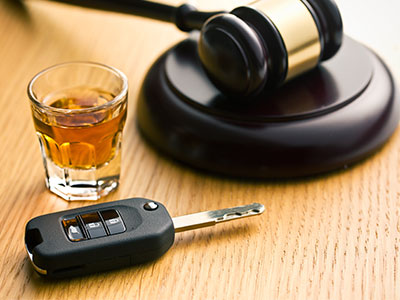Why Is It Important To Fight DWI Charges?
 The consequences of the DUI are long-lasting. While it’s great in New Jersey that DUI is not classified as a crime but merely a traffic offense, it is one that is seriously punished. Because it goes on your driving record as opposed to your criminal record, a conviction can never be expunged. It’s there forever and can potentially affect your life many years in the future. For example, if you’re unfortunate enough to get a second DUI, even if it’s 20 or 30 years down the road, that prior to DUI, that earlier DUI will affect how a judge sentences you and how some of the remedial actions required from a conviction would play out. For example, if one is convicted of DUI in New Jersey, they are mandated to attend a program called The Intoxicated Driver Resource Center.
The consequences of the DUI are long-lasting. While it’s great in New Jersey that DUI is not classified as a crime but merely a traffic offense, it is one that is seriously punished. Because it goes on your driving record as opposed to your criminal record, a conviction can never be expunged. It’s there forever and can potentially affect your life many years in the future. For example, if you’re unfortunate enough to get a second DUI, even if it’s 20 or 30 years down the road, that prior to DUI, that earlier DUI will affect how a judge sentences you and how some of the remedial actions required from a conviction would play out. For example, if one is convicted of DUI in New Jersey, they are mandated to attend a program called The Intoxicated Driver Resource Center.
If a person has an old prior conviction, even if it’s more than 10 years old, which would customarily entitle a person on a second conviction to receive a step-down and be sentenced as a first offender, for IDRC’s purposes, they will note that old convictions and can do such nasty little things like keep you from getting your license back even after you’ve served the sentence imposed by the judge. This is something that really shocks many people, all the people who had a DUI in their distant past. It’s also something that affects what alternative dispositions we may consider. One of the common dispositions is if one is subject to first offender treatment, if the breath test result or blood test result is determined to be inadmissible, frequently the state will agree to not offer that result if there is a guilty plea.
Now, the effect on that reduces license revocation, it can also eliminate a requirement that there’d be something called an alcohol ignition interlock installed on the car which would otherwise be mandatory. Those are factors that can affect how one decides whether to plead guilty or go to trial. But if you have an old prior DUI on your record, what looks like a great deal, 3 months versus 7 to 12 months revocation plus interlock, that’s what you’d be getting rid of. Really isn’t that great a deal because you would do the three months and then IDRC might prevent your restoration for another 2, 3, 4, 5 months. So that’s something people in that situation have to be made aware of right upfront so that we are in a position to make the right decision depending on what offer the state makes.
There are other things too that come up, like I said, for those who hold commercial driver’s licenses, a second DUI in New Jersey regardless of how old the prior one is will result in a lifetime revocation of the CDL. So DWI while not criminal in New Jersey is still very serious and something you don’t want on your driving record.
How Do You Discuss Collateral Consequences Of A DWI Conviction With A Potential Client?
We go over them right from the very first meeting. You can’t go into the game without knowing what the stakes are. I call this again not to trivialize it but simply to remind people that there are players, there are objectives and there are rules by which those objectives are attained. The reason I go over the consequences is because again, they have to plan for the worse case, as we hope for the best case. They also have to understand not only the consequences but the potential pre-scenarios that may be presented to them as we go through the process. Very often, plea opportunities arise unexpectedly because of unexpected turns of events, witness availability might change, for whatever the reason is.
These plea offers often come up on despair of the moment and clients are expected to make a very quick decision. I know with my clients, I don’t want that decision to be just off the spur of the moment, I want it to be something that we have thought about, discussed, considered and planned for so that when the right offer presents itself, we can say yes or no right away.
For more information on Importance Of Fighting DWI Charges, a free initial consultation is your next best step. Get the information and legal answers you are seeking by calling (732) 218-9090 today.

